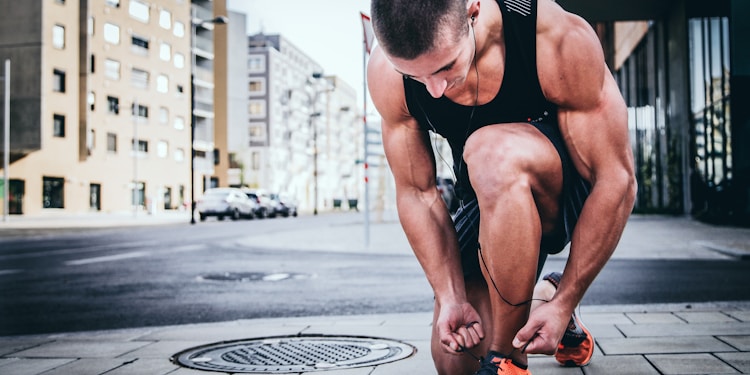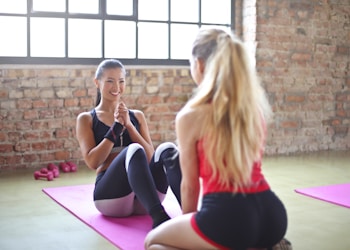Maintaining an active lifestyle is researched and tested as one of the healthiest ways to go about your life. With diseases, illnesses, and global pandemics wreaking havoc throughout the world in the 21st century, now would be the time to be fit and healthy.
Maintaining an active lifestyle and consuming a healthy diet is an investment that will always give you the best returns. Other than the occasional injury you may face (due to lousy coaching), there is nothing that can go wrong with exercising.Exercise is an essential part of life, regardless of your age. Children from a young age are taught to be active to have the agility and mobility to play. Moreover, with the obesity epidemic remaining an ever-present issue, it’s always a good idea to set the foundation from a young age.
Furthermore, exercise is necessary for the aging population to ensure that their joints and overall health are stable as they live their golden years.
This article is for all the athletes out there. We will go over several factors you should consider when exercising to make a part of your regime, regardless of age.
1. Protect your joints
One of the best things you can do when moving, lifting, or stretching is to protect your joints as much as possible. Athletes must have knee, wrist, elbow, and ankle supports in their gym bag.
Even something as simple as lifting a dumbbell in the gym can hurt you in ways you never imagined if you weren’t careful. Since it’s better to be safer than sorry, adding support to your joints will help you lift heavier, move better, and protect you during strenuous workouts.
Athletes know how damaging downtime can be for their sport/activity. No one wants to take time away from the things they love or the medium they use to make a living. Prevention is critical; wrapping your joints with support won’t change much about your routine.
2. Progressive overload
One of the biggest mistakes people make when they’re new to sports is rushing the process and biting off more than they can chew. Slowly increasing the intensity over time is the best way to go about things.
You don’t go into the gym and hit the 45lb dumbbells on the first day, do you? You take your time and work to a point where the weight feels comfortable. You will hurt yourself by lifting them off the rack as soon as you enter the gym.Take it slow, pace yourself right and work your way through the levels of intensity that feel right to you. The more you progress, the more likely your body will respond positively. If you jump to high-intensity levels without experience, you will soon plateau and feel demotivated.
Slow down there! Gradually increase your resistance and intensity. Make the process fun for yourself too. If you rush to achieve your goals too soon, you won’t get the chance to savor the sweet taste of victory.
3. Warm-up
The best thing you can do for yourself before working out is to warm up. Loosen up those joints, get some blood into those muscles and prepare your heart and lungs for what’s coming. Shocking the body may be good, but it could cave under pressure if you rush into things.
Muscle tears usually occur when the muscles aren’t ready for the load, don’t warm up properly, or because people add more weight than they can handle.
Whether it’s swimming, lifting, or simply going for a run, stretch and warm up for what’s ahead. Especially as you age, if you expect your body to go from zero to a hundred without warning, you will be in for a rude awakening.
4. Use a spotter
This one is for all the weightlifters out there. Lifting heavy weights and increasing intensity is part of progress. You will try and fail at some point, and you need to be ready for that. However, the implications of not being able to lift the weight on some exercises can negatively affect your health.
Dropping the weight on yourself can be painful and, in some cases, deadly. So before going in for a personal record (PR), please ask a friend or someone around you to spot you. If you are struggling on your final few reps, you don’t have to worry about potentially hurting yourself; you have someone nearby who can help you through the process.
5. Drink enough water
Muscle fatigue is likely to set in faster if you are dehydrated. Besides, it’s an immense risk to your health, and you can risk fainting. Moreover, prolonged spells of dehydration, consumption of supplements, and intense workouts could risk damaging your kidneys.Water is a crucial factor that could make or break your workout. Remember to drink a fair amount of water an hour before your workout and immediately after. Drinking too close to your activity could make you feel heavy and sluggish and give you cramps.
It’s important to note that increasing water intake, electrolytes, and supplementation is essential to being an athlete who exercises frequently.
Conclusion
So there we have it; some essential safety tips you should consider as an athlete. Age is just a number for participation in physical activity, but you must always protect yourself when engaging with your sport of choice.This article has talked about several factors that we think could be important when exercising, from using support to managing your hydration levels. Directly or indirectly, these are all related to exercise and fitness.
Being cautious is only going to benefit you in the long run. The more careful you are, the safer you will be, and the more likely you will excel in your activity.
















